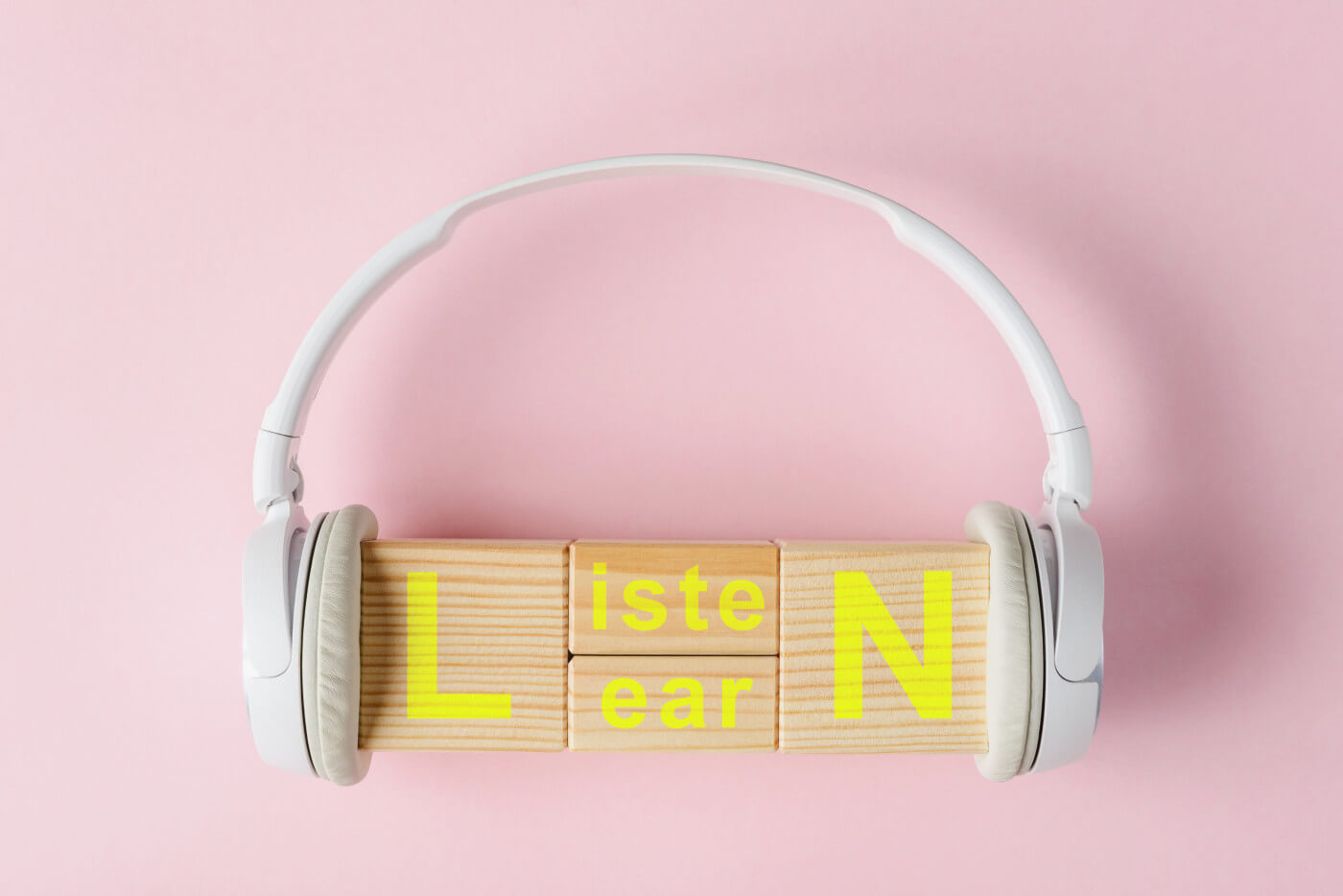The Auditory Learning Style - Characteristics and Study Strategies

Have you ever wondered why different people perceive the same experience so differently? It's impossible not to. The way we interpret the things we encounter in the environment shapes our interactions and experiences with them. Similarly, learning, as a set of cognitive processes, is inextricably linked to how we perceive and respond to our experiences. Recognising and defining your learning style is critical for academic success because it allows you to focus your efforts on introducing and implementing strategies that will improve your learning.
There are three frequently overlooked learning styles: visual, auditory, and kinaesthetic, which form the foundation for how learning occurs. In this post, we’ll show you what distinguishes the auditory learning style from other types of learning styles and what study strategies auditory learners can employ to achieve their academic goals. If you find that you are not an auditory learner after reading this post, we have previously discussed the visual learning style in an earlier piece, and the kinaesthetic learning style is upcoming.
What is Auditory Learning?
Auditory learning refers to learning processes that are best accomplished via listening or using your sense of hearing. Auditory learners prefer listening to a lecture over reading a textbook or hearing the instructions for a project instead of figuring it out hands-on. This means you would recall and comprehend new concepts better when they are explained out loud, even if you are the one speaking, which can help you remember and understand them better. When you combine new ideas and concepts with nonverbal sounds such as an instrumental version of a song, clapping, or drum beats, your knowledge retention can improve. As a result, you might be an auditory learner if you notice that studying while listening to music helps you remember better.
Strengths of Auditory Learners
As an auditory learner, you have a variety of qualities and characteristics that will enable you to thrive. Here are some strengths you may possess as an auditory learner:
- Excel in oral exams and presentations.
- Effective communication skills and public speaking abilities.
- Able to retain spoken information over extended periods.
- Able to work through complex problems by speaking aloud.
- Excellent listening skills and success in listening tests/exams.
- Able to quickly comprehend spoken information.
- Tend to excel in the language arts and music.
Auditory Learning Study Strategies
It is common for some people to become anxious during exam season due to the overwhelming feeling they have of being unprepared or not having enough time to revise everything they need for a specific subject. We frequently allow these feelings to cloud our thinking and prevent us from starting to study or even thinking about a study strategy. A head-on approach is one way to combat these feelings, and you can do so by becoming familiar with study strategies that might help you revise as an auditory learner. Here are some strategies you can employ to help improve your comprehension, memory and focus while preparing for exams.
Record classes:
Since you learn more effectively when your sense of hearing is engaged, recording your classes with your cell phone might be helpful. We acknowledge that there is a general rule that cell phones should not be used or visible during class time. However, ask your teacher if it is okay to make use of your phone. Your teacher may be willing to do a voice recording for the class and make it available to everyone in the class.
A recording is a type of study resource that can help you retain spoken information, for example, an explanation of a key concept or scientific process, making it easier to recall during exams. However, keep in mind that the recording is intended as study material and not a script that needs to be memorised. Your ability to apply what you've learned in a way that demonstrates your understanding, reasoning and ability to provide evidence will be taken into account when grading.
Include social elements:
Consider setting up a study group of students with similar strengths and academic goals. You could collaborate with learners who have different learning styles as long as their learning style helps to buffer any learning challenges you may be experiencing, so this is entirely up to you.
Here are some advantages of study groups:
- You will be exposed to different ways of thinking and learning.
- As you teach and learn from one another, you reinforce information.
- You can develop and strengthen your understanding by teaching others.
- They make you aware of any areas that need improvement or clarification.
- Provide support and motivation to learn.
- Working with students who are dedicated to maximising their academic potential can help overcome procrastination.
- Learning how to collaborate with others will help you develop teamwork skills, which will be useful for years after your high school education. You can also do pair testing and collaborate on past papers with a peer.
Verbal discourse:
Communication and discussion are crucial to auditory learning because they can help you retain material more effectively. As a result, it may improve your chances of recalling the information you've reviewed when taking tests and exams. We encourage you to engage in conversations about concepts and ideas related to the subjects you are studying; this will also help you learn how to construct arguments and support them.
Play non-verbal background music:
It can be challenging to revise when you are having trouble focusing on the subject you are studying. Playing music, without words, in the background might help you redirect your concentration and avoid distractions. Disclaimer: This may not work for everyone; give it a shot and see if it improves your focus.
Read aloud:
We know that hearing yourself read out can be an awkward exercise for some, but it is a great way of grasping information. Reading aloud is an auditory function, and using it can definitely improve your comprehension.
Support for Auditory Learners
If you feel that you need extra support to realize your academic goals, we recommend seeking the assistance of a professional familiar with various learning styles. Having someone skilled in a variety of teaching techniques can help you navigate any learning challenge and maximise your learning abilities.
When looking for extra help with studying and exam revision, think about the following points:
- Education experts have found that an interactive approach to learning is more beneficial for auditory learners. In a traditional classroom situation, when there are many students, each with different learning preferences, strengths, and learning styles, the use of interactive learning may be limited. As a result, this can often lead to learning blockers. You're probably thinking about how to get around this; one successful solution is to enlist the help of a tutor. Private tutoring provides a space for interactive learning as you will be able to ask questions and receive immediate feedback. Moreover, it will provide you with a more personalised approach to learning as every session will be dedicated to helping you maximise your learning abilities and reach your academic goals.
- In auditory learning, the process of translating words into images can be difficult. Therefore, it would be advantageous to have someone help you think under pressure in the form of practice exams and quizzes that demand more visual wording. Therefore, you need someone who is well-versed in your subject or subjects and who can develop practice exams or quizzes to aid in the development of your verbalisation of visual information.
- Your most powerful tool is repetition. We've established the importance of engaging your sense of hearing in auditory learning, therefore repetition is a learning activity that aids in information processing. As a result, repeating spoken information can help you understand it better, especially when paired with peer reading.
How can Teach Me 2 help?
The traditional classroom setting isn’t always the best environment for all learning styles, such as visual, auditory, and kinaesthetic, to thrive. One of the most effective ways to receive individualised academic support is through one-on-one tutoring. When you work with a tutor, you have access to a learning environment that is committed to assisting you with your particular academic needs, focused on helping you get through any learning challenges, and proven to help hone your strong areas to reach your full academic potential.
Teach Me 2 provides private tutoring in all high school subjects, which is facilitated by tutors who have received distinctions in the subjects we have approved them to teach. If you feel like you need a bit more direction on how to maximize your learning potential and strengthen your exam writing skills, we recommend scheduling a lesson with one of our tutors.
We have online tutors available as well as tutors in Johannesburg, tutors in Pretoria, tutors in Durban and tutors in Cape Town.
Related Articles

Visual Learning Style - Characteristics and Study Strategies
We’ll show you what distinguishes visual learners from other types of learners and what study strategies they can employ to meet their academic needs. (read more)
Read More

The Kinaesthetic Learning Style - Characteristics and Study Strategies
Have you ever seen someone scribbling in their notebook while the teacher is explaining an idea or concept in class? Although different people may learn and remember the same information, they do so in various ways. (read more)
Read More

How To Determine Your Child’s Learning Style
Did you know that everybody has a learning style? A learning style is simply how a person best learns and retains information.Do you often find yourself getting
Read More

We help families find their perfect tutor
Help your child improve their grades and get their confidence back.
GET A TUTOR